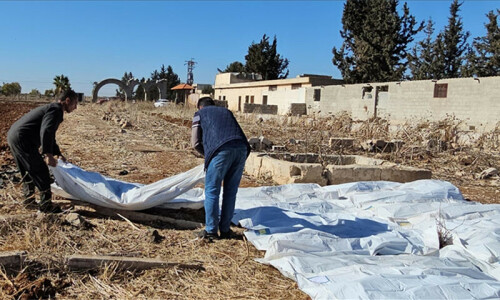ANOTHER day in Kohistan, another jirga-mandated murder of a girl. Her ‘crime’: dancing with boys in a video that went viral on social media. The harrowing incident bears a stark resemblance to the 2011 Kohistan case where five women were filmed clapping as a man danced. They were all reportedly murdered with a jirga’s approval. For such grisly crimes to continue more than a decade later raises alarming questions about parallel justice systems and the precarious state of women’s rights in Pakistan. The jirga, an assembly rooted in tribal traditions, operates outside the legal set-up, at times sanctioning murder. The state’s response often fails to make a lasting impact. The filing of an FIR in the recent case is a necessary step, yet is it sufficient to deter future killings? After all, the culprits of the 2011 crimes remain unpunished, while the man who brought the matter to light was gunned down, despite stating that his life was in danger. The plight of women in such scenarios is particularly distressing. Dubbed as ‘honour’ killings, these acts are, in fact, barbaric crimes that rob women of their dignity, agency, and ultimately, their lives. Women — in general, but particularly in these instances — are not seen as individuals with rights and freedoms but as mere bearers of communal honour, vulnerable to the most extreme forms of punishment for perceived transgressions.
The role of social media in exacerbating these situations cannot be overlooked. In an age where content can be rapidly disseminated and manipulated, the need for digital literacy and ethical standards in content sharing is more acute than ever. However, the solution does not lie in restricting digital freedoms but in educating and empowering communities to use these tools responsibly. Most importantly, there is a need for comprehensive reforms to ensure that jirgas, which have been upheld as illegal by the apex court, are replaced by state-sanctioned legal fora that uphold the principles of justice, human rights, and gender equality as enshrined in the Constitution. The state must assert its role in protecting its citizens, especially the most vulnerable, from parallel systems that perpetrate injustice and inequality. Our resolve must be to fight for a society where no individual lives in the shadow of an unjust verdict, and where the dignity and rights of every woman are upheld.
Published in Dawn, November 28th, 2023












































Dear visitor, the comments section is undergoing an overhaul and will return soon.